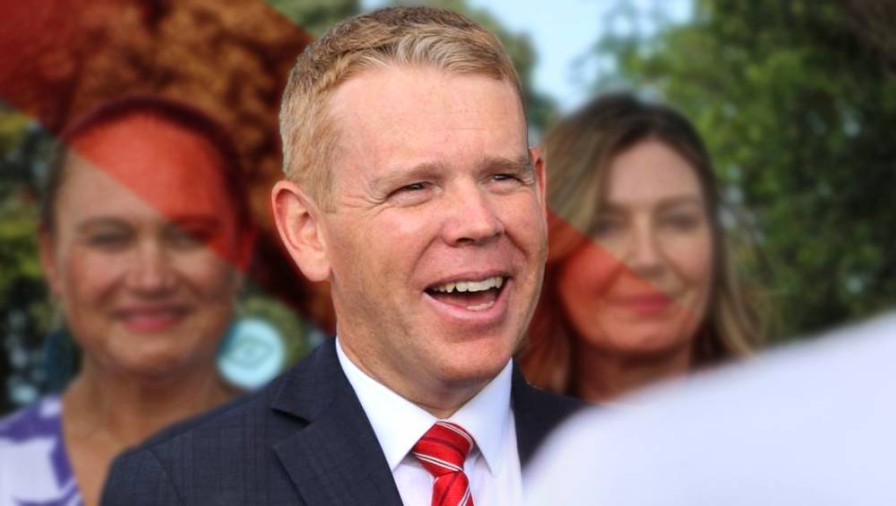

Politics, floods, climate change and rebuilding after the cyclone
ANALYSIS: The Government faces a challenge in managing recovery.
NBR columnist Grant Walker speaks with Brent Edwards.


ANALYSIS: The Government faces a challenge in managing recovery.
NBR columnist Grant Walker speaks with Brent Edwards.
Prime Minister Chris Hipkins could hardly have imagined a more hectic start to his prime ministership.
When the plan was hatched to pass the leadership from Jacinda Ardern to Hipkins neither of them could have imagined floods and cyclones would ensure such a dramatic start to the year. For her part, Ardern must be heaving a sigh of relief that she got out when she did.
For Hipkins, it has been a baptism by fire (or more accurately, water) and he has barely had time to draw breath since he took on the top job.
While Ardern was praised for her communication during the Covid-19 pandemic, Hipkins too has been a steady and reassuring presence at media conferences outlining the response to Cyclone Gabrielle. For the Government, this represents another test and, post the immediate response to the damage wrought by the cyclone, there will be keen interest in what programmes it puts together to aid the recovery.
Already farm and business groups are calling for assistance. Hipkins has already signalled there will be plenty of money made available to help the recovery, saying it would clearly have a significant impact on this year’s Budget. No-one yet can accurately estimate how much it will all cost but it clearly will run into billions of dollars.

Prime Minister Chris Hipkins.
While the Government might get some kudos for its immediate response, in the longer term it faces tricky political problems. No matter what it does, recovery will not come quickly enough for some people, particularly as families wait for homes to be repaired or rebuilt. Infrastructure in Hawke’s Bay and on the East Coast has also suffered significant damage. Getting it properly back on its feet will take time.
It is likely frustrations will grow and tempers fray, particularly as winter hits and progress is perhaps not as fast as some would like. In those circumstances, the Government is likely to get the blame. Much might depend on just how bold it is in backing recovery.
But what will happen to those homes built on flood-prone land? Will the recovery mean rebuilding them or will this be another opportunity for a managed retreat in the face of more extreme weather events, given extra potency by the effects of climate change?
Which brings us to the Natural and Built Environment Bill and Spatial Planning Bill – currently wending their way through Parliament. At select committee hearings a number of submitters, including the Insurance Council, have argued the country can no longer allow homes and other buildings to be built on flood-prone land or, as council chief executive Tim Grafton says, in “dumb places”.
At the same time there seems to be impetus from Climate Change Minister James Shaw and National Party climate change spokesperson Todd Muller to push ahead with the proposed Climate Change Adaptation Act. The Bill is not set to be introduced to Parliament until much closer to the October 14 election. But the devastating weather events in the first few weeks of this year have added to the sense of urgency.

Climate Change Minister James Shaw.
That legislation will set out more clearly rules around steps that need to be taken to protect property from climate change-induced weather events, including managed retreat.
But the two Bills already before the select committee also touch on this, as well as setting out rules to ensure in the future we do not build on land prone to the effects of climate change.
The committee also discussed the need to act with more urgency. Even once the Natural and Built Environment and Spatial Planning Bills become law, it will still take seven to eight years for them to take effect. It seems likely, in the immediate future, an amendment could be made to the Resource Management Act to direct councils not to approve developments in risky areas.
As Grafton told the committee, there was sympathy for those people affected by severe weather events who lived in properties that had been there for many years. But that sympathy waned for those who had built recently or would do so in the future on flood-prone land.
Labour’s leadership change and now bad weather have conspired to allow the Government to set the agenda for the year and leave the Opposition parties largely on the sidelines. And since Hipkins took over as leader, a number of opinion polls have Labour’s support up and National’s down, with possibly Te Pāti Māori set to be the kingmaker.
Hipkins’ favourability ratings are good, while National Party leader Christopher Luxon is lagging well behind, leading some commentators to question whether Luxon can or should hold on to his job.

National Party leader Christopher Luxon.
NBR presenter Grant Walker says Luxon is just not resonating with voters. That does appear to be true but National is still in a much better position compared with the period before Luxon took over the leadership. His response, too, to Cyclone Gabrielle was impressive, telling RNZ’s Morning Report this week that this was not about politics, but about what was best for New Zealanders.
This contrasted with Act Party leader David Seymour’s pique at Parliament being adjourned this week. National had agreed to adjourn Parliament for the week, with Luxon saying he would rather government ministers and MPs focused their attention on the response to the cyclone.
Walker also asks about speculation about an early election. He says it could be a good move by Hipkins at a time of crisis to call an election on the premise of needing to raise taxes to pay for the recovery.
There is, though, no need to raise taxes for that purpose. The Government’s books are still in good enough shape to borrow more to pay for the recovery. At the same time, it has no legitimate reason to go to the country early. Labour has a majority in Parliament. There is no threat to its ability to govern.
Calling a snap election would likely – and rightfully – be seen by voters as a cynical move to exploit a serious event that has left many people homeless.
Labour’s strategy must be to put in place a proper plan to rebuild after the cyclone, as well as set out a future path to making the country’s cities and towns more resilient in the face of increasingly extreme weather events. Do that well and it goes into the October 14 election with a strong story to tell. Do it badly and it will be a different story.
It will also look with interest at what the Reserve Bank does this year. The bank reviews interest rates again next week and, following the events of the past week, some economists are suggesting it will put on hold any intention to raise interest rates. But the damage wrought by the cyclone is also likely to put upward pressure on inflation, as vegetable and fruit prices go up and insurance premiums too. On the other hand, the impact of the cyclone is also likely to put a dent in economic activity, with the upper North Island suffering the most.
Next week we should finally hear Hipkins' Prime Minister’s statement – which will set out the Government’s agenda for the year – when Parliament resumes properly. Then on Wednesday he will go head to head as leader for the first time with Luxon.
Brent Edwards is NBR’s political editor.